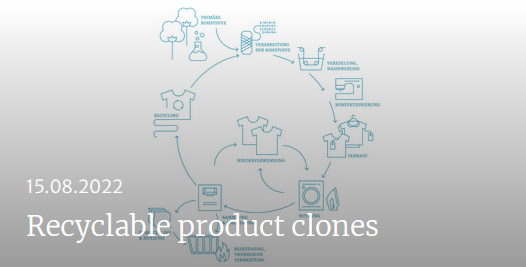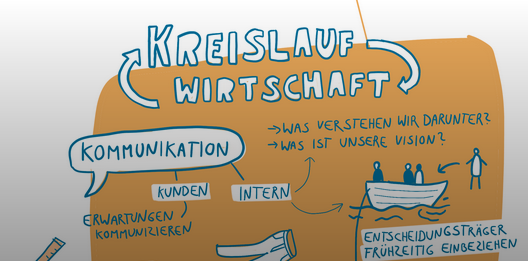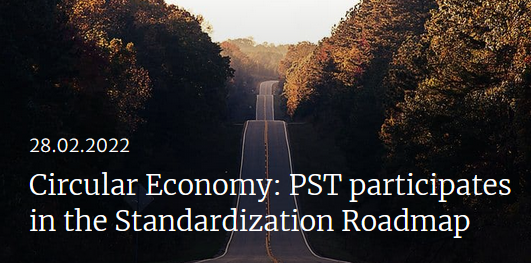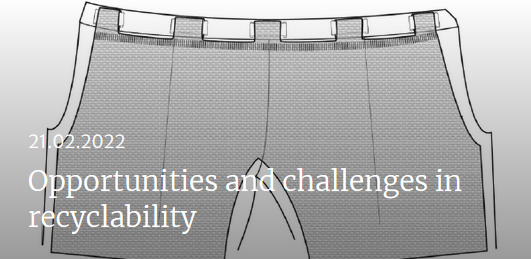Chapter 6.2
Circular economy
Focus topic
In March 2022, the European Commission presented the EU strategy for sustainable and circular textiles. The EU’s textile strategy is an initiative under the umbrella of the EU Green Deal and Circular Economy Action Plan. The strategy’s objectives are to make textiles more durable, repairable, reusable and recyclable by 2030 as well as to tackle fast fashion, reduce textile waste and prevent the destruction of unsold textiles. All this should also contribute to making the textile sector more resilient to crises and shocks in the supply of energy and raw materials.
Areas requiring specific regulation include:
- An ecodesign regulation for sustainable textile products to set out binding product-specific ecodesign requirements. This includes, for example, requiring manufacturers to provide information on the recyclability of their textiles and other environmental aspects in a digital product passport.
- The introduction of binding criteria on environmentally sustainable public purchasing.
- The destruction of saleable goods should be prevented through mandatory transparent disclosure of this practice, including a ban.
This means demands on textile production are changing in ways that will also impact members of the Textiles Partnership significantly in the years ahead.
Since 2020, an expert group has been working within the Textiles Partnership on various aspects of the circular economy. In 2022, during phase II of the Product Clones project, Partnership companies Blutsgeschwister, Hakro, Seidensticker and s.Oliver collaborated with the Niederrhein University of Applied Sciences to address sustainable design and the recyclability of materials used. The specific focus here was on two categories of products: shirt/blouse and jacket/coat. The project set out to identify barriers to the recyclability of these particular products and to design textiles in a more sustainable way.
In addition, the expert group on the circular economy organised a series of webinars and workshops on alternative business models, including renting and leasing models, recycling and take-back systems, retro-logistics and repair services. The aim was to share best practices among member companies and inspire them with the knowledge that the circular economy in business is feasible and that implementable solutions really are worthwhile. The presentations are available for Partnership members in the members’ portal.
The realignment in 2022 gave rise to a new focus topic on the circular economy and climate protection, established with a view to working in greater depth on this area and implementing specific projects.
‘Forced by legal regulations introduced by the EU, the textile and garment industry are having to rethink excess wastage and poor use of resources at a time when raw materials are in short supply. What sounds logical is not easy to implement, however. The development and practical implementation of material identification and material flow management are lacking, along with environmentally and economically sound recycling processes, durable products with recyclate content and much more besides. However, these tasks can be addressed more easily in cooperation with partners from business, municipalities and research. For this reason, we very much welcome the Partnership for Sustainable Textiles and its tireless project work. As the Niederrhein University of Applied Sciences we joined the Partnership, which enables us to be even more effective as problem-solvers within the industry. The Product Clones II project is one such example. Here, we were allowed to address in depth the recyclability of two product categories and in so doing develop cross-company approaches, without losing sight of the character of the products or companies. As a university, we are currently looking increasingly at the quality of old textiles. We want to know how much substance is left in used fibres at the end of a product’s life and whether these fibres are still suitable for recycling. The Product Clones project also gave us some answers to these questions.’
Prof Maike Rabe, Head of the Research Institute for Textiles and Clothing (FTB) at Niederrhein University of Applied Sciences
News
Start of the 2nd project phase
Now that the first phase has been successfully completed, the aim is to include further product categories.


News
The “perfect” solution for circular economy?
How do companies approach circular economy? What are the biggest challenges? In a workshop at the PST working meeting, around 30 members exchanged views on this.


News
Standardisation roadmap on circular economy
A standardisation roadmap is to provide an overview of the status quo of standardisation in the field of circular economy, describe requirements and challenges for seven focal topics and identify and formulate the concrete needs for action for future norms and standards.


News
Presentation of results in the product cloning project
Designing products to be sustainable and recyclable? That is possible, as a project of the Recycling Working Group shows. Nine alliance companies nominated ten of their products and had them analysed by the Niederrhein University of Applied Sciences. The results have now been presented.

